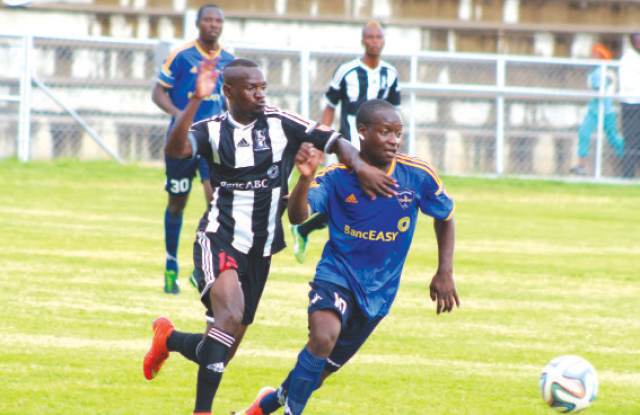AFMA leaders in new war over assets

Mashudu Netsianda Senior Court Reporter
RIVAL camps in the leadership wrangle of the troubled Apostolic Faith Mission of Africa (AFMA) are locked in yet another legal battle over control of church property.
The Reverend Clement Nyathi-led camp has filed a court application seeking an interdict against dethroned church leader Rev Tony Tshuma from controlling church assets. The group wants Tshuma to vacate church premises.
In his founding affidavit, Nyathi who is the first applicant, is accusing Tshuma, the respondent, of purporting to be the overseer and president of the church.
“The respondent continues to impose himself as the president and overseer of the Apostolic Faith Mission of Africa. The respondent and his camp are holding onto the church property and have been barring and preventing the applicants from having full control over the church property. The respondents are disposing the church properties and abusing them well knowing that their days are numbered. They’ve nothing to lose by unlawfully holding onto the property,” said Nyathi.
Nyathi claimed that Tshuma and his camp broke away and formed their church, the Apostolic Faith Church of Africa International.
Nyathi further claimed that he was duly appointed overseer and president in terms of the 1986 church constitution.
“The church operates as a trust and the first applicant is the president and overseer of the church as correctly reflected in the notarial deed of trust registered with the Registrar of Deeds’ office in Bulawayo. The respondents have no capacity to speak on behalf of the church anymore,” he said.
Tshuma, however, maintains that he was still the leader of the troubled church.
“Nyathi is hereby interdicted from acting as or purporting to be the president and overseer of the church in pursuant to the appointment and actions of his camp,” said Tshuma.
Tshuma is also accusing his rivals of convening unsanctioned meetings in Botswana, Mozambique and around the country during which Nyathi declared himself the leader.
“The respondents have held unsanctioned meetings in Chipinge, Gweru, Chikombedzi, Mozambique and Botswana.
“Between 8 and 11 August 2014, the respondents also held a meeting in Gokwe during which they publicly and officially appointed and endorsed Nyathi as the overseer and chairman of the board of trustees,” he said.
Tshuma said his rivals fraudulently amended the 1986 constitution of the church to facilitate the appointment of Nyathi as leader.
Tshuma was dethroned by the Bulawayo High Court in October last year, but took his case to the Supreme Court on appeal against Justice Nokuthula Moyo’s decision forcing him to step down as the church overseer and president.
Tshuma was appointed to lead the church in 2008 but Justice Moyo in her ruling declared his appointment a nullity, saying proper procedures were not followed.
She ruled that the church should elect a new leader and board members in terms of the church’s constitution of 1986.
Dissatisfied with the court ruling, Tshuma who is being represented by Majoko and Majoko law firm, filed a notice of appeal at the Supreme Court in Harare seeking to quash the lower court’s decision.
Justice Moyo noted in her ruling that Tshuma and his board of trustees were not properly elected in terms of the church constitution.
Nyathi accused Tshuma of conniving with some “few misguided individuals” to impose himself as the church’s leader soon after the death of church leader Rev Philemon Sibanda in 2008.
Since the beginning of last year, the church has been plagued by an acrimonious leadership wrangle pitting the Tshuma and Nyathi factions.
The late Rev Sibanda broke away from the original Apostolic Faith Church in Pelandaba in 1985 with his sympathisers and formed their own church at Lobengula Extension, renaming it Apostolic Faith Mission of Africa.
The Apostolic Faith Church in Zimbabwe was founded by the late Rev Morgan Sengwayo in 1955.











Comments